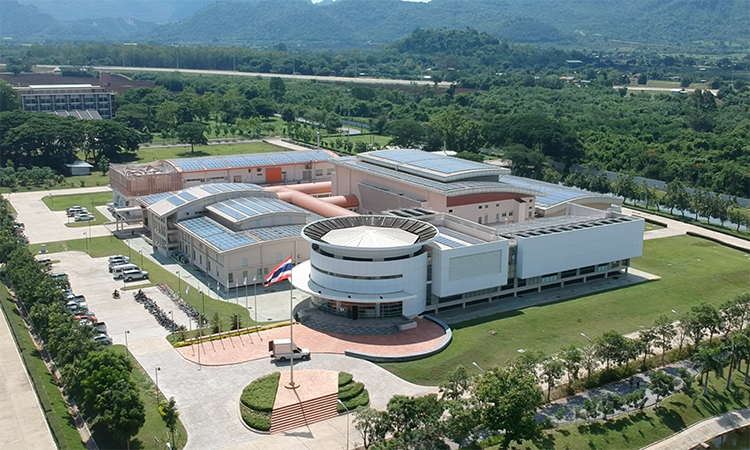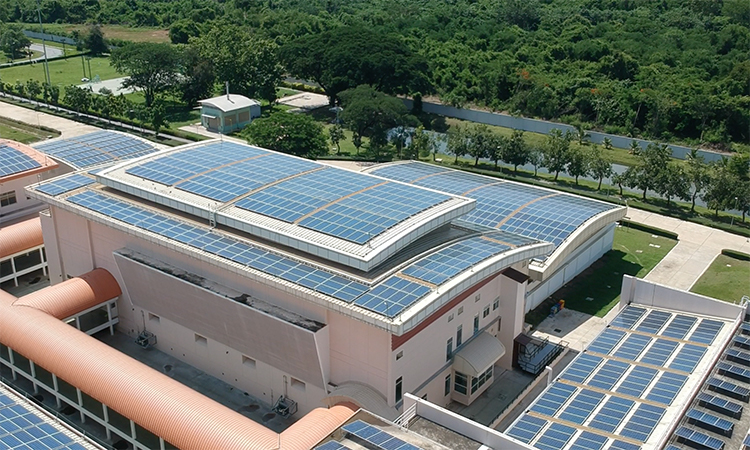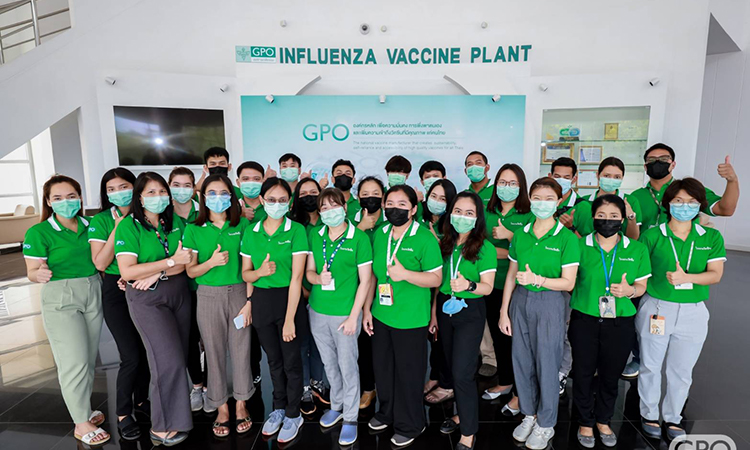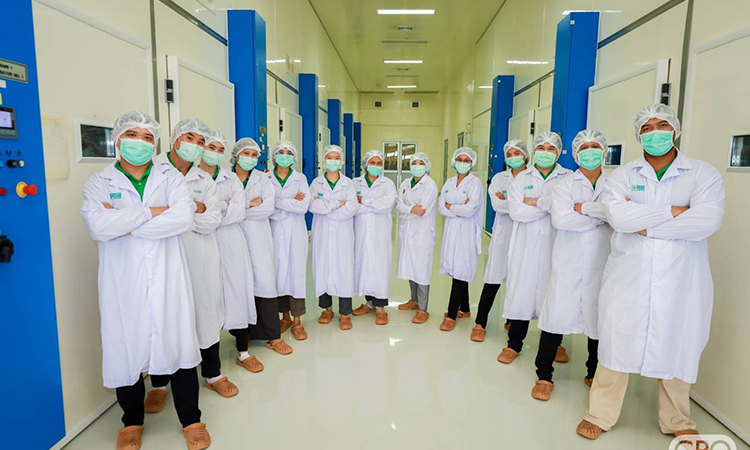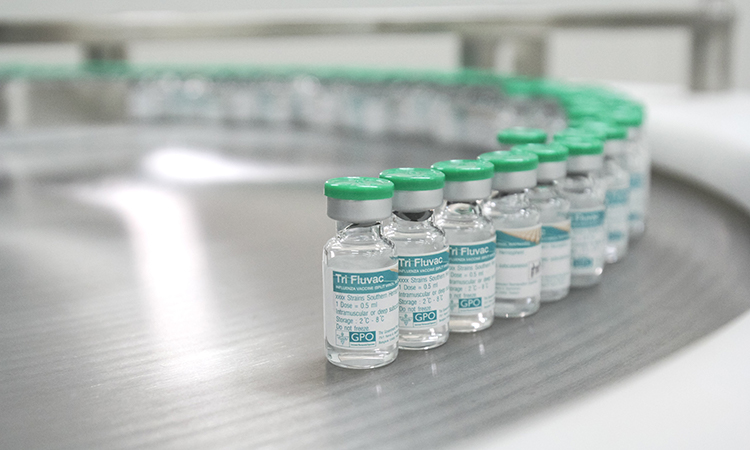Meet The Government Pharmaceutical Organization: 2021 Facility of the Year Awards Winner for Social Impact
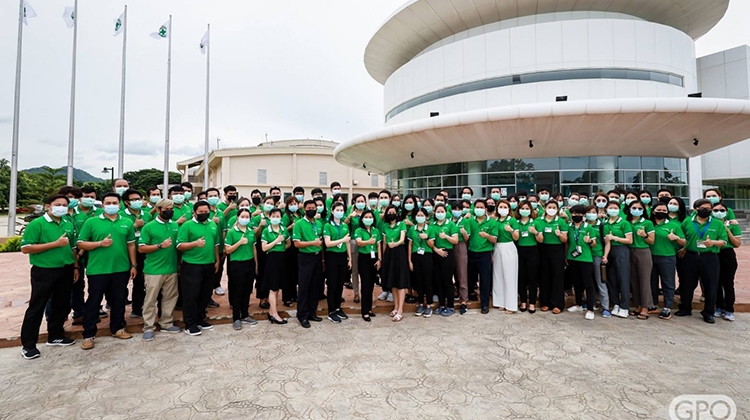
Government Pharmaceutical Organization is the 2021 Facility of the Year Awards Winner for Social Impact for their Biological Produce (Vaccine) Production Plant in Saraburi Province, Thailand.
Winners in the Facility of the Year Awards (FOYA) Social Impact Category exemplify application of novel approaches, standards, and practices which results in efficient processing, resourceful utilities, and business advantage by accelerating a shift to sustainable facility design to reduce environmental impact, and/or increasing patient access and preventing drug shortages through in-country-for-country manufacturing.
Project: Biological Produce (Vaccine) Production Plant
A part of the government of Thailand, Government Pharmaceutical Organization (GPO) produces vaccines in a government-owned facility, where a key focus is providing free inoculations to high-risk groups. Increased patient access, such as the kind GPO offers, prevents drug shortages by manufacturing critical medications for patients at home. GPO helps mitigate the consequences of rapidly developing public health crises through rapidly deployed vaccines. Another part of the GPO success story, qualifying it for social impact recognition, is sustainability in its facility design. This has reduced the environmental impact of GPO on Thailand and, ultimately, the world.
FOYA Judges
A Focus on Vaccines
Even before the COVID-19 pandemic spread across the world, the Government Pharmaceutical Organization (GPO) was focused on the health benefits of vaccines. During the avian flu outbreak of 2004, the Thai government realized the importance of seeking new ways to more effectively get vaccines to people in need. As part of the effort, they asked the GPO to build a new vaccine plant to meet the needs of Thailand and the surrounding countries.
Located in Saraburi province in Thailand, the Biological Product (Vaccine) Production Plant consists of five buildings and has the capability to produce seasonal (trivalent) inactivated influenza vaccines, pandemic (monovalent) influenza vaccines, and COVID-19 vaccines using egg-based technology. The primary goal is to produce enough vaccine to cover national seasonal demand. Building capacity is driven by public health and not commercial concerns. The production plant is designed for 10 million doses of seasonal flu vaccine, 30 million doses of monovalent vaccine, and 300 million doses of pandemic influenza vaccine which would enable GPO to supply vaccines to other ASEAN countries.
Thailand began an immunization program in 1977 that has grown to provide countrywide vaccinations for children for diseases such as tuberculosis, polio, meningitis, diphtheria, tetanus, and pertussis. However, an avian flu outbreak in 2005 had a high fatality rate, leading the Ministry of Public Health to include the establishment of a domestic vaccine production as a key element of the country’s five-year health plan.
The World Health Organization (WHO) provided GPO a 10-year support under a Global Action Plan (GAP) for influenza vaccine, which gave both financial and expert support. Thailand was one of the first countries to get support to develop egg-based live attenuated influenza vaccine (LAIV). The U.S. Department of Health and Human Services (HHS) also provided financial support for human resource development in the field of vaccine production.
While GPO staff have managed their own R&D over the last 15 years, as well as all parts of the supply chain, they have had additional help developing their COVID-19 vaccine from the global organization called “PATH.” Under license agreements with Mount Sinai and University of Texas at Austin, PATH is helping to provide GPO an access to the vaccine seed virus.
GPO is also striving to adopt a zero-waste concept. As part of this policy, biological solid waste from the eggs used in vaccine production is decontaminated, dehydrated, and grounded to be recycled and used as fertilizer or combined in cement block. The plant is fitted with solar panels on the roof which currently provide 800 kilowatts of power. GPO plans to increase the number of panels by 2023 to make the plant as energy self-sufficient as possible.
GPO’s egg-based vaccine production technology has been recognized on both national and international levels with awards from the National Innovation Award, the National Research Council of Thailand, and several ASIA-Pacific Bioprocessing Excellence Awards.
Two main delays had to be overcome during the project. First, a flood in 2011 affected a huge area to the north of Bangkok, blocking access to the site resulting in work coming to a stand-still for 6 months. WHO requested modification to the plant’s bio-safety specifications from level 2 to level 2+ and while the required modifications were being planned, the Thai government underwent a period of turmoil with changes in leadership and an Army coup.
Despite these setbacks, GPO was able to construct the Biological Product (Vaccine) Plant designed to provide 10 million vials of multiple dose vaccine and 4.8 million prefilled syringes. The conventional design includes office area, lab areas, CNC areas, and sections for sterile preparation. After successfully developing vaccines to protect the population from flu outbreaks, GPO is now setting its sights to stopping the spread of COVID-19.
“In November 2020, we obtained the prototype vaccine to be tested for proof-of-concept and the results showed that the vaccine is safe, immunogenic, and protective against coronavirus,” said Mr. Kittisak Poopipatpol, the Senior Expert of GPO. “The vaccine is ready for testing at clinical level and entered the clinical study phase 1 in March 2021. We expect to start the clinical efficacy trial phase 3 in November 2021 and aim to submit for Emergency Use Authorization to the Thai FDA in June 2022.”
Nominate Your Facility for the 2022 FOYA Program!
Apply for a chance to join this prestigious list of innovative game-changers and let ISPE honor your organization as a 2022 FOYA program winner. Applications must be submitted by 19 November 2021.


